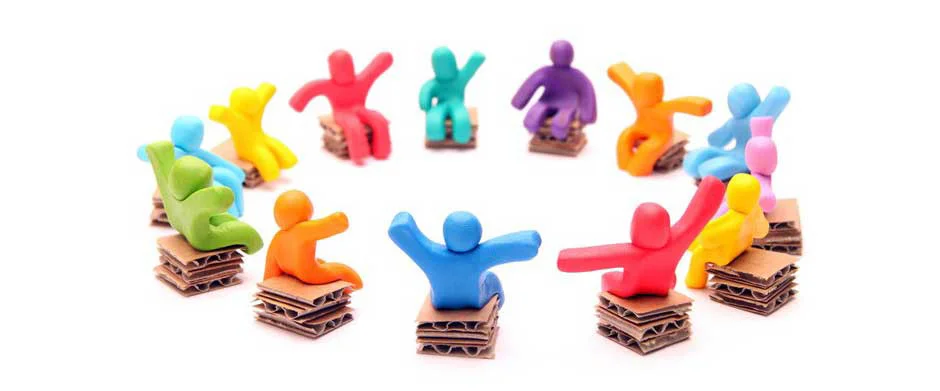Teen Resources
According to the NIH website:
Adolescent drug abusers have unique needs stemming from their immature neurocognitive and psychosocial stage of development. Research has demonstrated that the brain undergoes a prolonged process of development and refinement from birth through early adulthood. Over the course of this developmental period, a young person’s actions go from being more impulsive to being more reasoned and reflective. In fact, the brain areas most closely associated with aspects of behavior such as decision-making, judgment, planning, and self-control undergo a period of rapid development during adolescence and young adulthood.
Adolescent drug abuse is also often associated with other co-occurring mental health problems. These include attention-deficit hyperactivity disorder (ADHD), oppositional defiant disorder, and conduct problems, as well as depressive and anxiety disorders.
Adolescents are also especially sensitive to social cues, with peer groups and families being highly influential during this time. Therefore, treatments that facilitate positive parental involvement, integrate other systems in which the adolescent participates (such as school and athletics), and recognize the importance of prosocial peer relationships are among the most effective. Access to comprehensive assessment, treatment, case management, and family-support services that are developmentally, culturally, and gender-appropriate is also integral when addressing adolescent addiction.
Medications for substance abuse among adolescents may in certain cases be helpful. Currently, the only addiction medications approved by FDA for people under 18 are over-the-counter transdermal nicotine skin patches, chewing gum, and lozenges (physician advice should be sought first). Buprenorphine, a medication for treating opioid addiction that must be prescribed by specially trained physicians, has not been approved for adolescents, but recent research suggests it could be effective for those as young as 16. Studies are under way to determine the safety and efficacy of this and other medications for opioid-, nicotine-, and alcohol-dependent adolescents and for adolescents with co-occurring disorders.
NIDA for Teens: www.teens.drugabuse.gov
NIDA Evidence-Based Approaches to Treating Adolescent Substance Use Disorders
Partnership for Drug-Free Kids
At the Partnership for Drug-Free Kids, we are committed to helping families whose son or daughter is struggling with substance use. We empower families with information, support and guidance to get the help their loved one needs and deserves. And we advocate for greater understanding and more effective programs to treat the disease of addiction.
The site is recommended by NIDA and NIH
Students Against Destructive Decisions
Empowering Teens Through Peer-to-Peer Education
For 35 years, SADD has been the leading organization committed to saving lives by empowering teens to stand strong against destructive decisions.
Quit Alcohol
Guidance and Support for the Struggling Addict
QuitAlcohol.com is an initiative with the Alcohol Abuse Counsel and a trained group of volunteers. Alcoholism is a widely spread disease and we feel that it is our public duty to educate folks around the world about the problem. Join us today and let’s take a stand. Let’s help Alcoholics recover once and for all.
Driving Under the Influence of Alcohol – Statistics
Everyone knows that driving drunk or under the influence of drugs is a dangerous and inconsiderate action that endangers not only the driver but the safety and lives of others as well. And yet, a staggering number of accidents and fatalities still happen every year due to impaired driving.
College Students’ Guide to Substance Abuse in College
According to the National Institute on Alcohol Abuse and Alcoholism, about four out of five college students drink alcohol. Though drinking has long been the most common form of substance abuse in college, the National Institute on Drug Abuse points out that the use of marijuana, prescription drugs and illicit drugs is on the rise. The good news is that students can be proactive in understanding what constitutes substance abuse, how to keep their own habits in check, and how to spot problems in themselves or others. This guide offers a wealth of resources to help students do all of those things and more.
Teen Challenge USA
200 locations nationwide Teen Challenge offers Christ-centered, faith-based solutions to youth, adults, and families who struggle with life-controlling problems. Teen Challenge is holistic – meaning that we are concerned with the body, mind, and spirit of those who come to us for help. We endeavor to help people become mentally sound, emotionally balanced, socially adjusted, physically well, and spiritually alive. We are confident that a restored relationship with God, through Jesus Christ, can transform those who are broken into vibrant, free, and sober people .
The Partnership for Drug Free Kids
The Partnership for Drug Free Kids works to reduce adolescent substance abuse by supporting families and engaging with teens. The Parent Support Network is a wonderful system of care for parents whose adolescent children struggle with addiction, and provides a goal-driven, action-oriented hotline for parents. Drugfree.org also provides public education and youth programming. Because not all addiction is about drugs and alcohol, the Center for Internet and Technology Addiction has created a useful website full of resources specific to those with addiction to technology: http://virtual-addiction.com/ and for those addiction to the Internet: http://netaddiction.com/.
Young People in Recovery
Young People in Recovery is a national advocacy organization, which aims to influence public policy, making it easier for our youth to find and maintain their recovery from addiction. YPR establishes city and state chapters, which act as vessels, carrying out our organizations vision and mission. Our chapters wear two hats:Advocacy & Action. They are volunteer advocates who work at the grassroots level in communities to increase access to education and employment opportunities and secure quality housing for young people in or seeking recovery from addiction.
High Schools, Higher Edu. & Therapeutic Schools
Association of Recovery in Higher Education (ARH)
The Association of Recovery in Higher Education (ARHE) is the only association exclusively representing collegiate recovery programs (CRPs) and collegiate recovery communities (CRCs), the faculty and staff who support them, and the students who represent them. ARHE provides the education, resources, and community connection needed to help change the trajectory of recovering student’s lives. We are a network of professionals, administrators, faculty, staff, students, parents and policy makers.
Defined as “A voluntarily maintained lifestyle characterized by sobriety, personal health and citizenship’ (Betty Ford Institute, JSAT 2007) recovery from addiction is a lifelong process. With approximately 21% of the young adult population between 18 – 21 meeting the criteria for substance abuse disorders (SAMHSA), the collegiate community is a fertile ground for supporting students in recovery and positively impacting the stigma associated with addiction.
A collegiate recovery program (CRP) is a supportive environment within the campus culture that reinforces the decision to disengage from addictive behavior. It is designed to provide an educational opportunity alongside recovery support to ensure that students do not have to sacrifice one for the other.
MISSION STATEMENT
Change the trajectory of recovering students’ lives by connecting, developing, and sustaining collegiate recovery through collaboration, guidance, and expertise.
https://collegiaterecovery.org/
The Association of Recovery Schools ( High Schools ) (ARC)
The Association of Recovery Schools is a registered 501 (c) 3, nonprofit organization comprised of recovery high schools as well as associate members and individuals who support the integral growth of the recovery high school movement.
At ARS, we prepare and inspire starters and operators of Recovery High Schools to perform at their very best. We believe that while addiction thrives in isolation, recovery is a process of hope and healing that thrives in the positive peer communities of recovery schools.
Connected through principles, disciplines and tools that set the gold standard for educating and supporting students in recovery, we collaborate with a broad and diverse global network to advocate for a continuum of support and a readiness for student transition in and out of Recovery High Schools. We provide deep expertise, resources and data-driven best practices to Recovery High Schools through training, consulting and accreditation services, while serving as advocates for the educational inclusion of youth recovery.
We believe that every student in recovery is of value and worthy of an opportunity to be educated so they can heal, grow and ultimately discover how to live their very best life.
Our Mission:
We support and inspire recovery high schools for optimum performance, empowering hope and access to every student in recovery.
Our Vision:
Our vision is expressed through a defined set of strategic pillars:
A quality accreditation process will position ARS as the resource for Recovery High Schools.
Training and consultation will be provided by ARS to meet current and emerging needs of its members.
Advocacy will focus on preparing ARS to influence national policies and equipping members to respond to local issues.
Investments in data collection will enable ARS to create best-in-class training and resources for the recovery school community.
Ease-of-access to resources will be a hallmark of ARS.
https://www.recoveryschools.org/
National Assoc. of Therapeutic Schools & Programs NATSAP
Natsap.org 301-986-8770
Membership In NATSAP
Membership in NATSAP is voluntary and is renewed annually. Our members include therapeutic schools, residential treatment programs, wilderness therapy programs, outdoor therapeutic programs, young adult programs and home-based residential programs. NATSAP requires the members of our organization to be licensed by the appropriate state agency authorized to set and oversee standards of therapeutic and/or behavioral healthcare for youth and adolescents or accredited by a nationally recognized behavioral health accreditation agency and to have therapeutic services with oversight by a qualified clinician.
NATSAP’s Role In Placement
NATSAP members are independently operated and owned; therefore, NATSAP does not provide placement services.
Each young person has his or her own specific needs that must be determined in detail before placement in any program is appropriate. Since NATSAP has no means of determining the needs of young people whose counselors or families may be using the NATSAP directory and information on members, NATSAP does not recommend specific programs.
High Schools for Teens
Newport Academy
in Connecticut
888-532-3574
www.newportacademy.com
Treatment Center
This is a rustic ranch with a 60-day program for boys ages 14-24 dealing with addictions of alcohol and drugs.
406-854-2832 in Marion, Montana.
www.wilderness-therapy-program.com
Whetstone Boys Ranch
a Christian therapeutic school for boys ages 13-17 yrs. located in Mountain View, Missouri.
417-934-1112
www.whetstoneboysranch.com
Wilderness Treatment Center
This is a rustic ranch in Marion, Montana with a 60-day program for boys ages 14-24 dealing with addictions of alcohol and drugs.
406-854-2832
www.wilderness-therapy-program.com
Wilderness Way Girls Camp
a Christian Wilderness Camp school located in Fair Play, SC for girls ages 8-16 yrs. Average stay is 18-22 months.
864-972-0611
www.wwgirlscamp.org
Wildheart Adventure Camp
a 3 week Christian adventure camp for boys ages 13-17 yrs located in Amberg, WI
715-759-5976
www.wildheartadventurecamp.org
Wingate Wilderness Therapy
a wilderness therapeutic program in Kanab, Utah that helps emotionally troubled adolescents (ages 13-17 yrs) and young adults (ages 18- 26 yrs) find a path to hope.
800-560-1599
www.wingatewildernesstherapy.com
Wolf Creek Academy
a Christian college prep. emotional growth school for youth located in the mountains of Western North Carolina that specializes in academics, anger management, drug abuse, opposition and respect for authority. For boys and girls ages 12-18 yrs. Average stay is 6-9 months.
1-877-477-9653 -
www.wolfcreekacademy.org
Yellowstone Boys and Girls Ranch
in Billings, Montana. This is a Christian psychiatric residential treatment program/school for disturbed youth ages 8-18.
800-726-6755
www.ybgr.org
Youth Care
a CRC program located in Draper, Utah. Youth Care is a clinically intensive residential treatment center for students ages 11-17. Average length of stay is 5 months. For students struggling with academic difficulties, mental health issues, chemical dependency. They will receive individual care in a small, family oriented environment.
800-786-4924
www.youthcare.com
Military Schools:
Chamberlain-Hunt Academy in Port Gibson, Mississippi.
This is a Christian Military boarding school for boys in 7th through 12th grades.
601-437-8855
www.chamberlain-hunt.com
Lyman Ward Military Academy
in Camp Hill, AL
www.lwma.org
Riverside Military Academy
in Gainesville, GA. grades 7-12, SACA accredited.
770-532-6251
www.cadet.com






